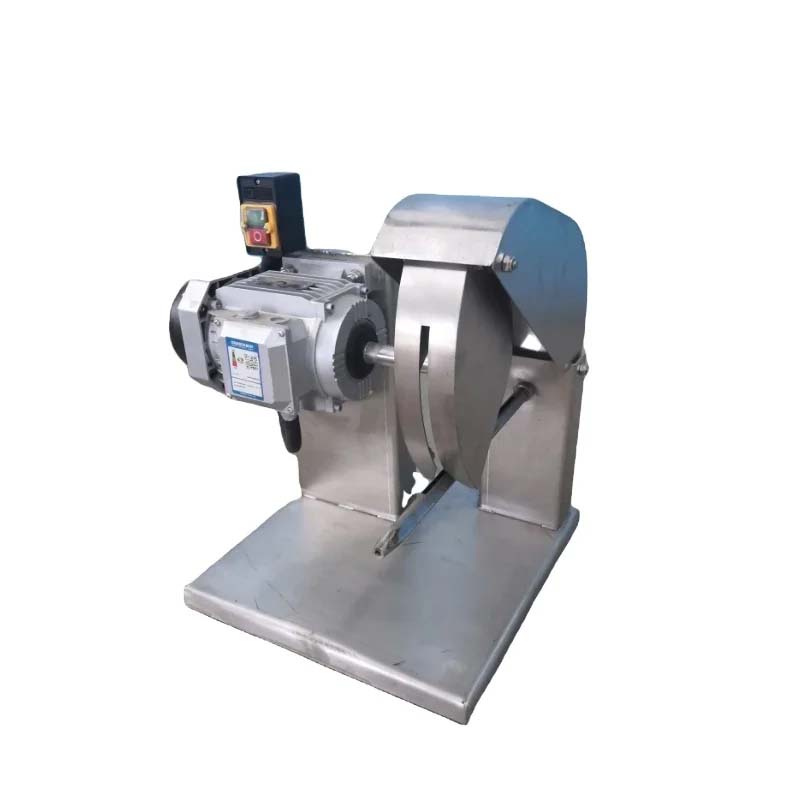chicken feed mixer
Oct . 20, 2024 03:41 Back to list
chicken feed mixer
The Importance of Chicken Feed Mixers in Poultry Farming
Poultry farming has seen remarkable advancements in recent years, particularly with innovations designed to optimize feeding practices. One of the critical pieces of equipment that have facilitated this evolution is the chicken feed mixer. These machines play a vital role in ensuring that chickens receive the right balance of nutrients for optimal growth and health. In this article, we will explore the functionalities, benefits, and importance of chicken feed mixers in the poultry industry.
What is a Chicken Feed Mixer?
A chicken feed mixer is a piece of equipment used to combine various feed ingredients into a uniform and consistent mixture suitable for poultry consumption. The main objective of these mixers is to ensure that all nutrients, vitamins, and minerals are uniformly distributed throughout the feed. This uniformity is essential for the health of the birds, as any imbalance can lead to nutritional deficiencies that may adversely affect growth rates, egg production, and overall health.
Types of Chicken Feed Mixers
There are several types of chicken feed mixers available, each designed to cater to different scales of poultry farming. Common types include
1. Horizontal Mixers These are widely used in large farms and commercial operations. They feature a large trough where ingredients are loaded and mixed through rotating augers. 2. Vertical Mixers More suited for small to medium-sized farms, vertical mixers combine feed ingredients in an upright cylinder, using vertical augers for mixing.
3. Mobile Feed Mixers Ideal for farmers who need mobility, these mixers can be moved around the property and are typically mounted on a trailer.
Benefits of Using Chicken Feed Mixers
chicken feed mixer

Utilizing a feed mixer brings numerous benefits to poultry farmers
1. Efficiency and Time-Saving Manual mixing of feed can be labor-intensive and time-consuming. A feed mixer automates this process, saving time and allowing farmers to focus on other critical activities.
2. Precision in Nutritional Requirements Chicken feed mixers ensure that every batch of feed meets specific nutritional requirements. This precision prevents health issues related to inadequate or unbalanced diets.
3. Improved Feed Palatability Properly mixed feed is more appealing to chickens, encouraging them to eat better. This increased feed consumption can lead to better growth rates and improved overall performance.
4. Cost-Effective By creating customized feed mixes tailored to the specific needs of the flock, farmers can optimize their feed costs. This is particularly relevant as feed constitutes a significant portion of poultry farming expenses.
5. Quality Control Feed mixers allow farmers to maintain consistent quality in their feed. By monitoring ingredient batches, farmers can ensure that their chickens receive the best possible nutrition.
Choosing the Right Mixer
When selecting a chicken feed mixer, farmers should consider several factors, including the size of their operation, the types of feed they want to mix, and their budget. It’s crucial to choose a mixer that can handle the specific feed materials and volumes needed, while also fitting into the farm's operations.
Conclusion
The chicken feed mixer is an indispensable tool in modern poultry farming, ensuring that chickens receive a well-balanced diet that promotes health and productivity. As the poultry industry continues to evolve, the role of these mixers will only grow in importance, helping farmers meet the increasing demands for poultry products while maintaining high standards of animal welfare. By investing in the right feed mixer, poultry farmers can enhance their operational efficiency, improve the health of their flock, and ultimately contribute to a more sustainable agricultural future.
-
Automatic Feeding Line System - Anping Yize|Poultry Efficiency&Durability
NewsJul.29,2025
-
Automatic Feeding Line System-Anping County Yize Metal Products Co., Ltd.|Durable PP Material&Easy Maintenance
NewsJul.29,2025
-
Automatic Feeding Line System-Pan Feeder Nipple Drinker|Anping County Yize Metal Products Co., Ltd.
NewsJul.29,2025
-
Hot Sale 24 & 18 Door Rabbit Cages - Premium Breeding Solutions
NewsJul.25,2025
-
Automatic Feeding Line System Pan Feeder Nipple Drinker - Anping County Yize Metal Products Co., Ltd.
NewsJul.21,2025
-
Automatic Feeding Line System Pan Feeder Nipple Drinker - Anping County Yize Metal Products Co., Ltd.
NewsJul.21,2025






